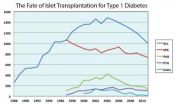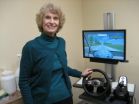(Press-News.org) From a very young age, children are targeted with advertising messages that emphasize fun and happiness, especially for food products and toys. But what happens to these beliefs once the child is grown? According to a new study in the Journal of Consumer Research, children develop brand loyalty and biases that carry over into their adult lives and are often difficult to change.
"Our research provides an initial investigation into how exposure to ads in childhood can lead to enduring biases that favor products associated with the ads once the kids grow up," write authors Paul M. Connell (Stony Brook University), Merrie Brucks, and Jesper H. Nielsen (both University of Arizona).
In four studies, the authors examined adults' judgments of the healthiness of various products, some of which were heavily advertised in their childhood years. Participants viewed images of characters that would have been widely advertised when they were children. Study results showed that when exposed to advertising using characters before age 13, we develop positive long-term feelings towards the characters and the brands' nutrition for years to come.
Additionally, the researchers found that people who harbor strongly positive feelings toward the advertising character resist changing their minds about the products featured in the ads. They discovered that these effects are not limited to the products that were originally advertised. That is, if people continue to have positive feelings toward advertising characters, then they also rated fictitious new brand extensions as healthier.
The findings may give some insight into public health and safety campaigns aimed at children. Companies producing health-oriented media campaigns targeted at children could aim to relate to children on an emotional level, for example, by emphasizing loveable characters and fun narratives.
"These results are interesting for consumers themselves, particularly parents," the authors conclude. "We recommend adults reexamine the nutrition labels on favorite products from childhood, and also suggest that parents discuss the persuasive nature of advertising with their children—encouraging them to develop critical thinking skills in response to advertising messages."
INFORMATION:
Paul M. Connell, Merrie Brucks, and Jesper H. Nielsen. "How Childhood Advertising Exposure Can Create Biased Product Evaluations That Persist into Adulthood." Journal of Consumer Research: June 2014. For more information, contact Paul Connell or visit http://ejcr.org/.
They're grrrreat! How do brands create loyalty that lasts a lifetime?
2014-03-11
ELSE PRESS RELEASES FROM THIS DATE:
Gift giving 101: When do 'perfect' gifts backfire?
2014-03-11
When it comes to shopping for gifts, we try to select things we think people both want and need. According to a new study in the Journal of Consumer Research, focusing too much on the gift recipient can lead to giving the gift we were trying to avoid in the first place.
"We predict that in a gift-giving situation, both the gift givers and gift receivers will focus on the gift receivers when thinking about the gift. Givers will choose gifts that are more desirable over gifts that are more practical, whereas receivers will give greater weight to the gift's practicality," ...
LSU research shows face matching for passports and IDs incredibly fallible
2014-03-11
BATON ROUGE – New research finds face matching, as when customs agents check passports, to be incredibly fallible, with error rates between 10 and 20 percent under ideal, laboratory-induced conditions, and much worse in more realistic settings.
"Because society relies on face perception and ID verification for many tasks, people are often under the impression that we are experts in this domain," said LSU Assistant Professor of Psychology Megan Papesh. "Our research shows the precise opposite."
In a recent article published in Attention, Perception, and Psychophysics, ...
Poison Centers benefit patients, reduce medical costs, study finds
2014-03-11
Patients who received help from a poison center had shorter hospital stays and lower hospital charges among those who are the most expensive to treat, according to a study led by researchers at the University of Illinois at Chicago School of Public Health.
Poison centers provide 24-hour assistance year round to the public and to medical professionals. While studies show that poison centers reduce system-wide costs, their impact on patient outcomes at the hospital level has not been clear, the study's authors report.
The researchers conducted a retrospective analysis ...
New organ transplant strategy aims to better prevent rejection
2014-03-11
Organ-transplant recipients often reject donated organs, but a new, two-pronged strategy developed by UC San Francisco researchers to specifically weaken immune responses that target transplanted tissue has shown promise in controlled experiments on mice.
The hope is that using this novel treatment strategy at the time of transplantation surgery could spare patients from lifelong immunosuppressive treatments and their side effects. The approach might also be used to treat autoimmune diseases such as type 1 diabetes, the researchers said. The study is published and commented ...
Bending the light with a tiny chip
2014-03-11
Imagine that you are in a meeting with coworkers or at a gathering of friends. You pull out your cell phone to show a presentation or a video on YouTube. But you don't use the tiny screen; your phone projects a bright, clear image onto a wall or a big screen. Such a technology may be on its way, thanks to a new light-bending silicon chip developed by researchers at Caltech.
The chip was developed by Ali Hajimiri, Thomas G. Myers Professor of Electrical Engineering, and researchers in his laboratory. The results were presented at the Optical Fiber Communication (OFC) conference ...
Detecting, testing, treating rare diseases: Technology delivers new era of personalization
2014-03-11
LOS ANGELES (March 10, 2014) – A team of researchers from the National Institutes of Health, Emory University and Cedars-Sinai – specialists in identifying and treating very rare diseases – used three innovative tools to detect a previously unknown gene mutation, test potential therapies in the lab, and initiate personalized drug treatment for a boy with a lifelong history of uncontrollable seizures that caused significant impact on his cognitive and social development.
"This personalized medical approach exemplifies the power of current research tools and shows the immense ...
Study using driving simulator determines when it's safe to drive after hip replacement
2014-03-11
After hip replacement surgery, many patients are anxious to resume driving, and a new study challenges the conventional wisdom that patients should wait six weeks before getting back behind the wheel. Dr. Geoffrey Westrich, director of research, Adult Reconstruction and Joint Replacement at Hospital for Special Surgery in New York City, found that patients in the study were able to return to driving four weeks after total hip replacement.
The study, titled, "A Novel Assessment of Driving Reaction Time Following THR Using a New Fully Interactive Driving Simulator," will ...
New MRI can 'see through' metal screws to follow patients after hip fracture surgery
2014-03-11
People who sustain the most common type of hip fracture, known as a femoral neck fracture, are at increased risk of complications. A special type of MRI developed at Hospital for Special Surgery in collaboration with GE Healthcare can show a detailed image following fracture repair, without the distortion caused by metal surgical screws that are problematic in standard MRIs.
Each year, more than 340,000 people suffer a broken hip in the United States. The femoral neck, the area just below the ball of the hip's ball-and-socket joint, is the most common site of fracture, ...
Study: Women report more pain than men after knee replacement surgery
2014-03-11
Middle-aged women with rheumatoid arthritis or arthritis resulting from an injury are among the patients most likely to experience serious pain following a knee replacement, researchers from Hospital for Special Surgery (HSS) in New York have found.
One of the biggest concerns patients have is the amount of pain they will have after knee replacement surgery. Although it is a very successful operation overall to relieve arthritis pain and restore function, persistent postoperative pain can be a problem for some patients. Researchers at HSS set out to determine which groups ...
Personality may be key risk factor in preventive health care
2014-03-11
WASHINGTON – When it comes to helping young adults avoid serious health problems later in life, assessing their personalities during routine medical exams could prove as useful as recording their family medical histories and smoking habits, according to new research published by the American Psychological Association.
"Health care reform provides a great opportunity for preventive care, with physicians seeing more young adults who may not previously have had insurance," said lead author Salomon Israel, PhD, of Duke University and Duke University Medical Center. "Our research ...

